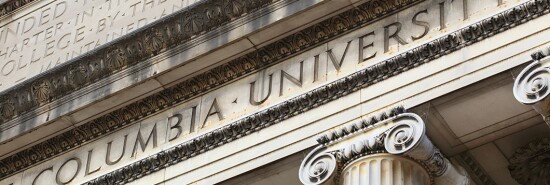
Are elite universities trying to continue racial preferences through other means?
Jack Elbaum
Video Embed
After the Supreme Court ruled that affirmative action in college admissions “violates the Equal Protection Clause of the Fourteenth Amendment,” universities across the country expressed their dismay. Now, many are likely trying to covertly maintain their racial preference regimes through other means.
Columbia University Law School included a new part of its application that would require “all applicants to submit a 90-second ‘video statement.’” It said such a video was necessary to gain “additional insight into [the applicant’s] personal strengths and academic or other achievements.” But it remains unclear what strengths or accomplishments could be ascertained from such a video that are not sufficiently covered by a resume or essay. In all likelihood, it is a way to consider skin color without really considering skin color.
BIDENOMICS: WHY BIDEN GETS POOR RATINGS ON THE ECONOMY DESPITE IMPROVING NUMBERS
The Washington Free Beacon reached out to the school for comment, and they quickly backtracked, saying “It was inadvertently listed on the Law School’s website and has since been corrected.” The executive director of the American Civil Rights Project told the outlet, “There’s no reason the school would need a video, so the requirement of such a submission is powerful evidence of an intent to discriminate.” He also “added that the Equal Employment Opportunity Commission, which enforces workplace discrimination law, has long warned employers not to ask for photographs of applicants.”
But this is not the only example, nor is it even the most blatant.
Today, we found out that Johns Hopkins University added a new supplemental essay prompt for its prospective class of 2028 that asks applicants to “Tell us about an aspect of your identity (e.g. race, gender, sexuality, religion, community, etc.) or a life experience that has shaped you as an individual and how that influenced what you’d like to pursue at Hopkins.”
Harvard also jumped in, adding an essay prompt that reads, “Harvard has long recognized the importance of enrolling a diverse student body. How will the life experiences that shape who you are today enable you to contribute to Harvard?”
As I said: it just looks like racial preferences through alternative means. The more universities ask to hear about an applicant’s sense of identity through essays, videos, or other materials, the more subjective it makes the entire process. It then becomes quite easy for admissions officials to continue to engage in precisely the practices that were deemed illegal by the Supreme Court but be able to hide behind the idea they were just assessing the quality of such essays, for example.
Yes, the opinion of the court held that universities may consider “an applicant’s discussion of how race affected his or her life, be it through discrimination, inspiration, or otherwise.” But it also said, “Universities may not simply establish through application essays or other means the regime we hold unlawful today.”
Is giving preference to some races and discriminating against others really so sacred?
CLICK HERE TO READ MORE FROM THE WASHINGTON EXAMINER
Jack Elbaum is a summer 2023 Washington Examiner fellow.
